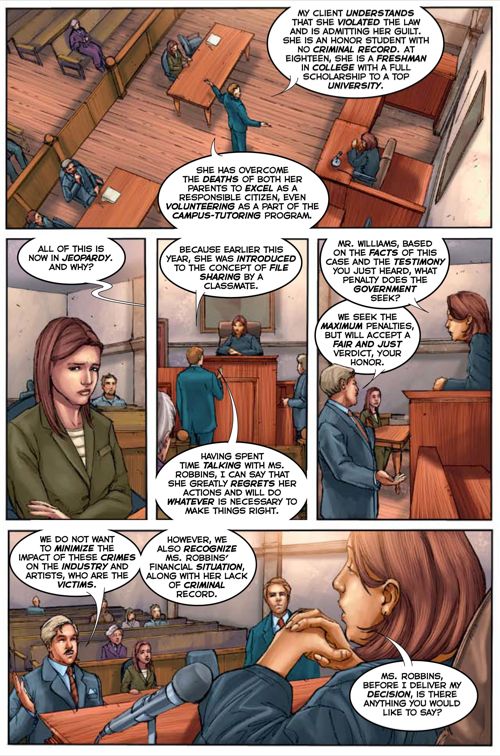
[Image via NCSC]
ZDNET: Jammie Thomas-Rasset was hit with a $1.9 million verdict for filesharing 24 songs — roughly $80,000 per song. Is that even constitutional? Thomas-Rasset’s lawyers filed an appeal saying it’s not. Friday, the Justice Department weighed in with an opinion that it is. Under the Copyright Act’s statutory damages provision, the jury had a wide berth to assign damages – anywhere from $750 to $30,000 for standard violations and from $30,000 to $150,000 for “willful violations.” The argument is basically that such high numbers are punitive in nature and punitive damages need to bear some resemblance to actual damages. With actual damages in the realm of $1 per song, the ratios are clearly beyond the pale of “reasonableness.”
In a memorandum to the court, the Justice Department first attacks the defendant’s reliance on the famous BMW v. Gore case, in which the U.S. Supreme Court knocked down a jury’s punitive damages award, finding that at 100 times actual damages the verdict violated due process. The Justice Department’s argument is that the Gore decision only applies to jury awards. A different case – the 1919 case of St. Louis IM&S Ry. Co. v. Williams – controls statutory damages laws like the Copyright Act, the Justice Dept. said.
The commonsense argument, Justice says, is that the Court never intended the rule in Gore to apply to statutory damages laws because statutory damages are drafted specifically because actual damages are minimal. Statutory damages create a deterrent effect in cases where actual and reasonably related punitives do not. For example, if the actual value of a song is $1, appropriate punitives would only be $4-$5, not enough to discourage people from engaging in the behavior. In such cases, Congress creates statutory damages to make the penalty sufficiently painful. Thus, Justice says, it makes no sense to apply the due process concerns of Gore to the Copyright Act. MORE
